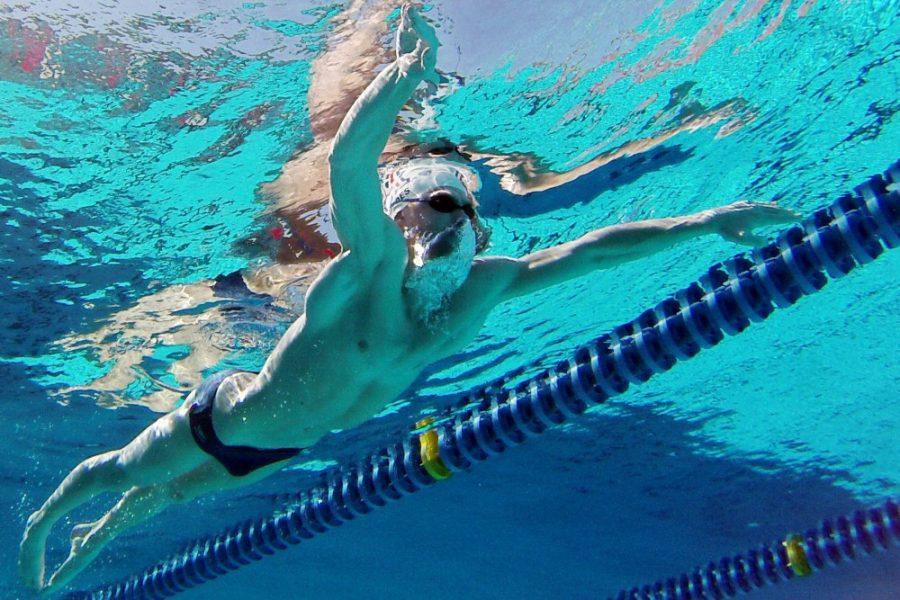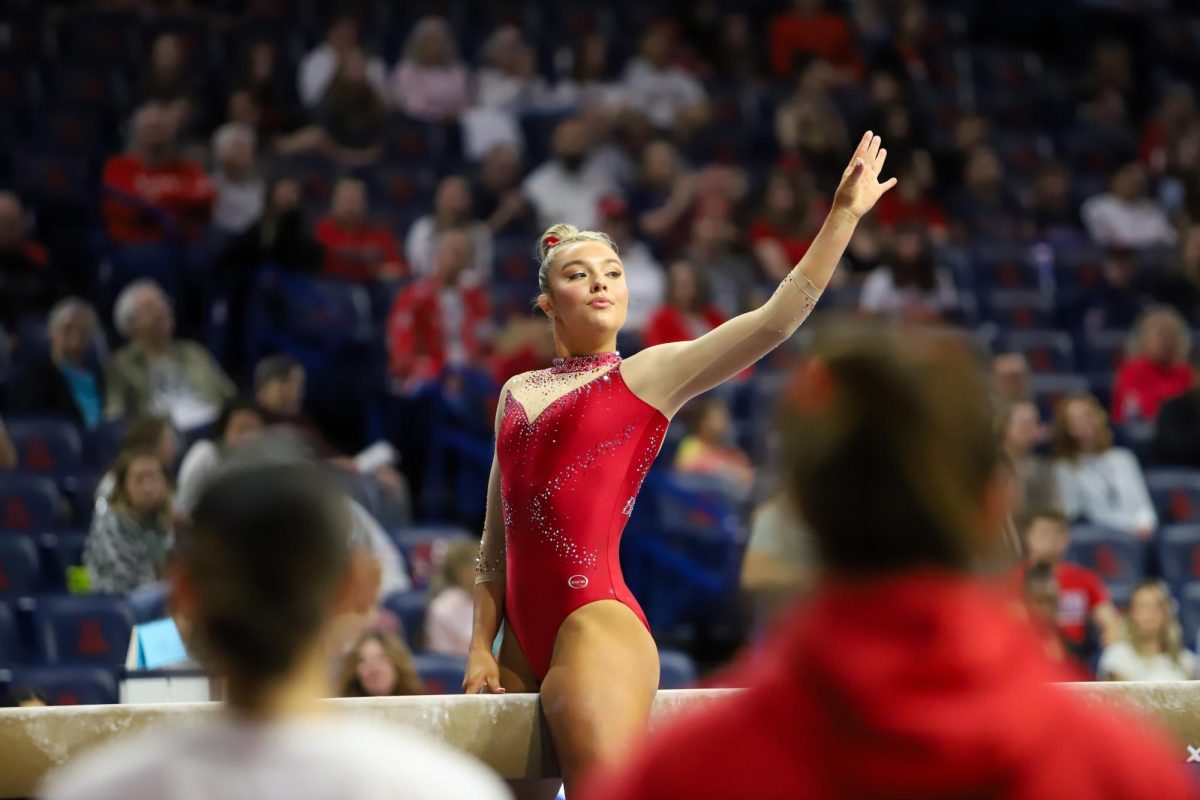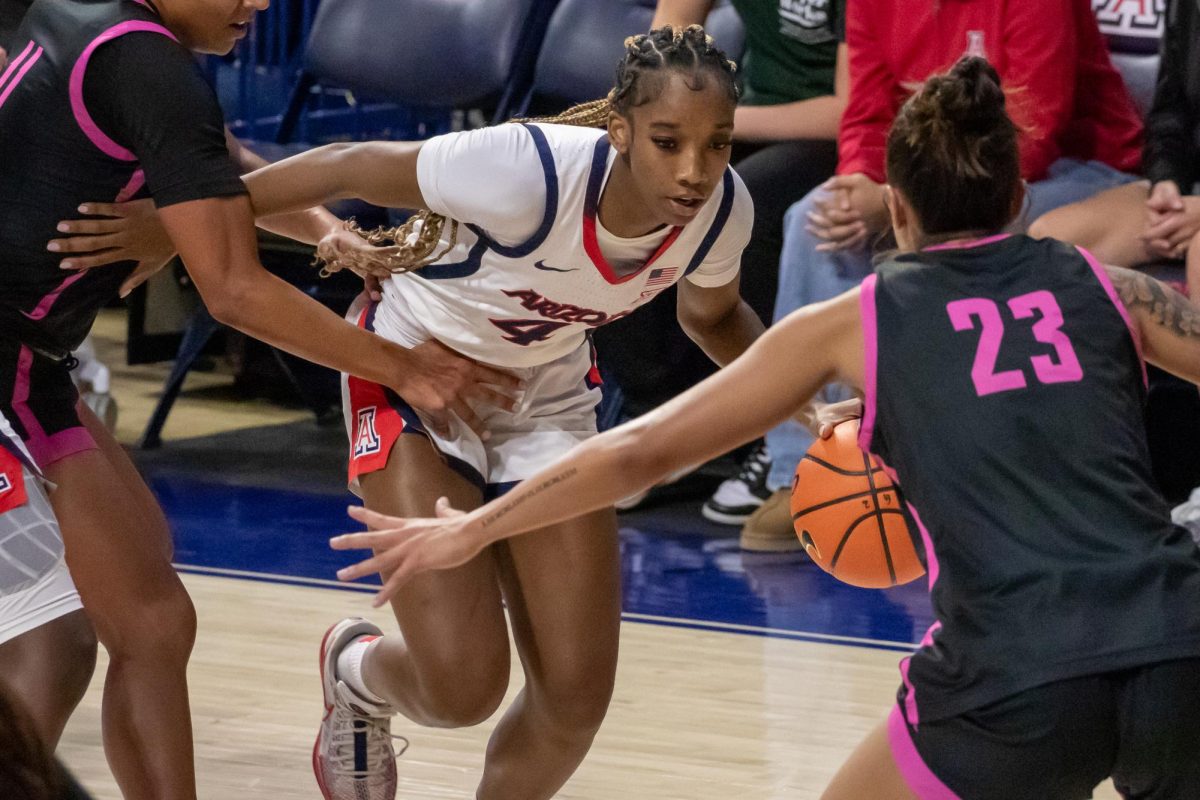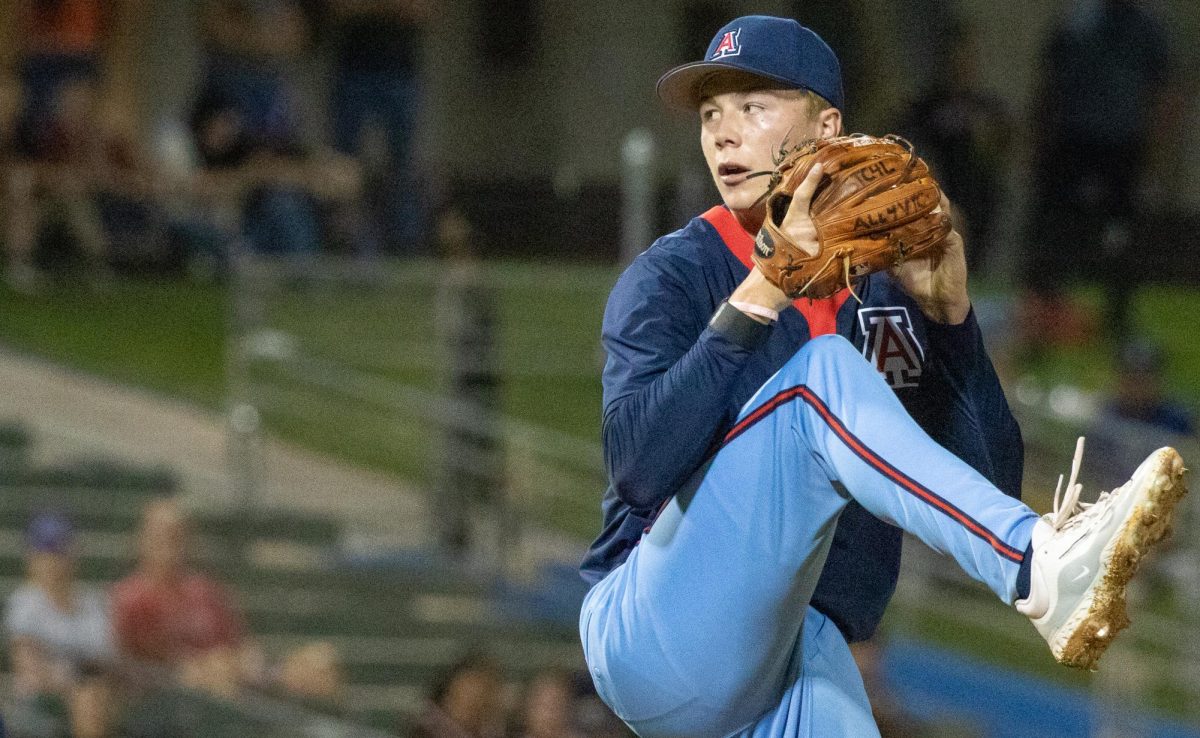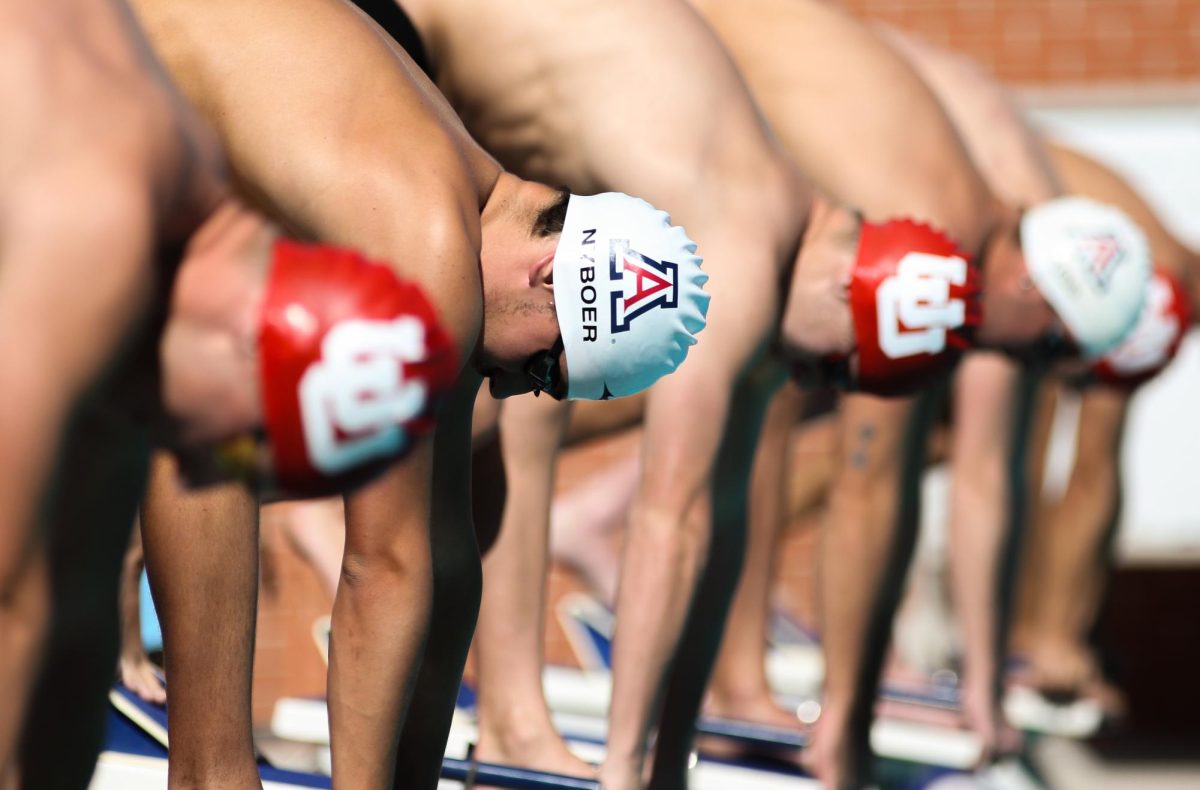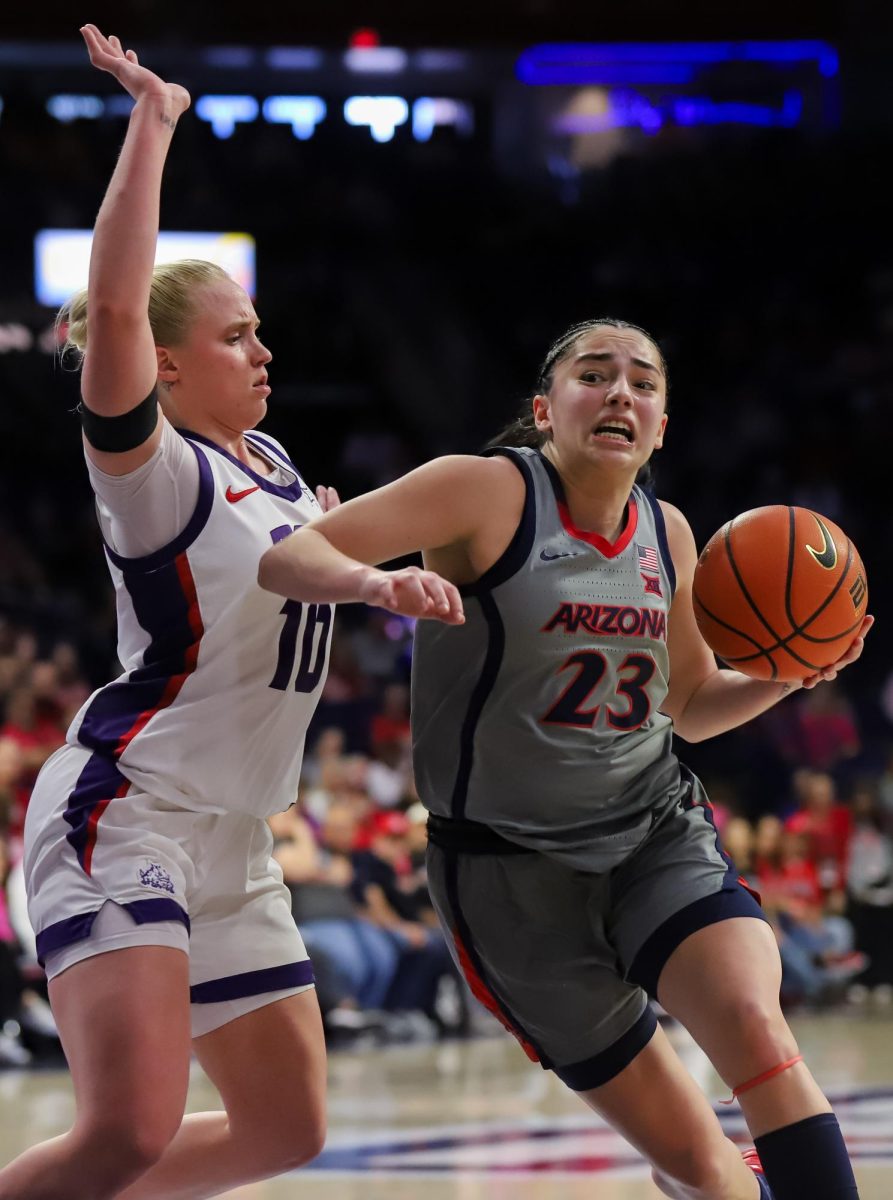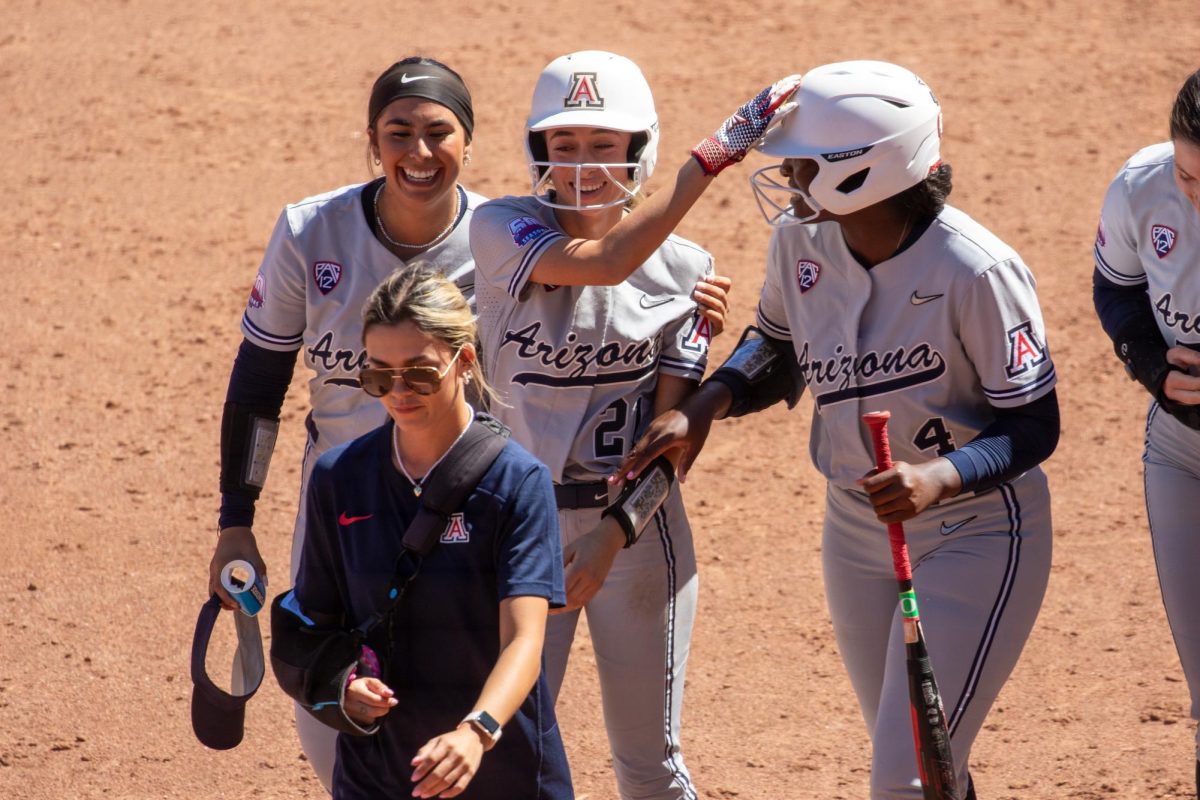Kevin Cordes began swimming in a summer league in his hometown of Naperville, Ill., when he was 6 years old. By the time he started his freshman year at Neuqua Valley High School, he had already proven himself to be a talented breaststroke swimmer.
But another high school standout largely stole the spotlight from Cordes.
Matt Elliott, who now swims for Florida, beat Cordes in three out of the four state championships in which they competed against each other.
“It was a great rivalry and really pushed us to take it to the next level, because we knew the other swimmer was going to do the same,” Cordes said.
After high school, Cordes took a number of recruiting trips to different schools across the country. He settled on Arizona, saying that he “fell in love with the team.”
Since his freshman year with the Wildcats, Cordes has made a habit of shattering records, many of which he set himself.
He is the American, NCAA and U.S. Open record-holder in both the 100-yard and 200y breaststroke events. After going undefeated in individual events this season, Cordes was named NCAA Swimmer of the Year.
Measuring in at a long-limbed 6-foot-5, Cordes said his physical build has a lot to do with his success in the pool, noting that his oversized feet allow him to “grab a bunch of water” with each kick. However, he said it’s his feel for the stop-and-go motion of the breaststroke that accounts for his unprecedented speed.
“It’s unlike any other stroke,” he said. “It’s a really feel-driven stroke — you have to be flowing the whole time.”
Head coach Rick DeMont called Cordes an anomaly. Along with his “incredible physical attributes,” DeMont said that Cordes’ mental approach to swimming is second to none.
“He thinks like a champion,” DeMont said. “He’s very competitive and just wants to get better.”
In addition to constantly altering the record books, Cordes is rewriting the book on breaststroke strategy, DeMont said.
Over the last six to eight years, DeMont said, the trend has been to take more and more strokes per lap. Cordes cuts against the grain by taking fewer strokes and spending more time in the “glide position.”
“Breaststroke has gone from adding more strokes and higher tempo to now, where he’s taking it back the other way,” DeMont said.
Next season will be Cordes’ last as a Wildcat, but as one of the best swimmers in the country, he is expected to make a bid for the 2016 Olympics in Rio de Janeiro, Brazil.
Six-time Olympic medalist Matt Grevers, who trains with the team, said that as a collegiate swimmer, Cordes is one of the best he’s ever seen.
“No one wins by that much at NCAAs in a [100y event],” he said. “It’s an incredible thing to watch him swim.”
However, Grevers said the transition from collegiate swimming in the U.S. to international competition is difficult due to the difference in pool length.
Most of Cordes’ races this season were held over a 25-yard “short course.” At the Olympics, each length of the pool is 50 meters. Because of this difference, Grevers said that Cordes will lose some of the edge he gains with his great underwater skills, such as his turn and his pullout, which is the first stroke he takes after diving into the pool.
“Short-course swimming and long-course swimming are very different,” Grevers said. “He’s so long and he hits every turn so well and has such great pullouts, [but] a lot of his best advantages go away when it’s Olympic-style swimming.”
Cordes acknowledges that he has leagues of work left to do.
“The ultimate goal, looking ahead, is 2016,” he said, “but right now, I’m focusing on this summer and what I need to accomplish to take those next steps.”
A week after dominating the national field at the NCAA Championships, Cordes was back in the pool, training for next season.
“I took a week off just to enjoy it and reflect on the season, and now we’re back at it,” he said. “It’s been amazing, and I’m not done yet.”
—Follow Mark Armao @MarkArmao



